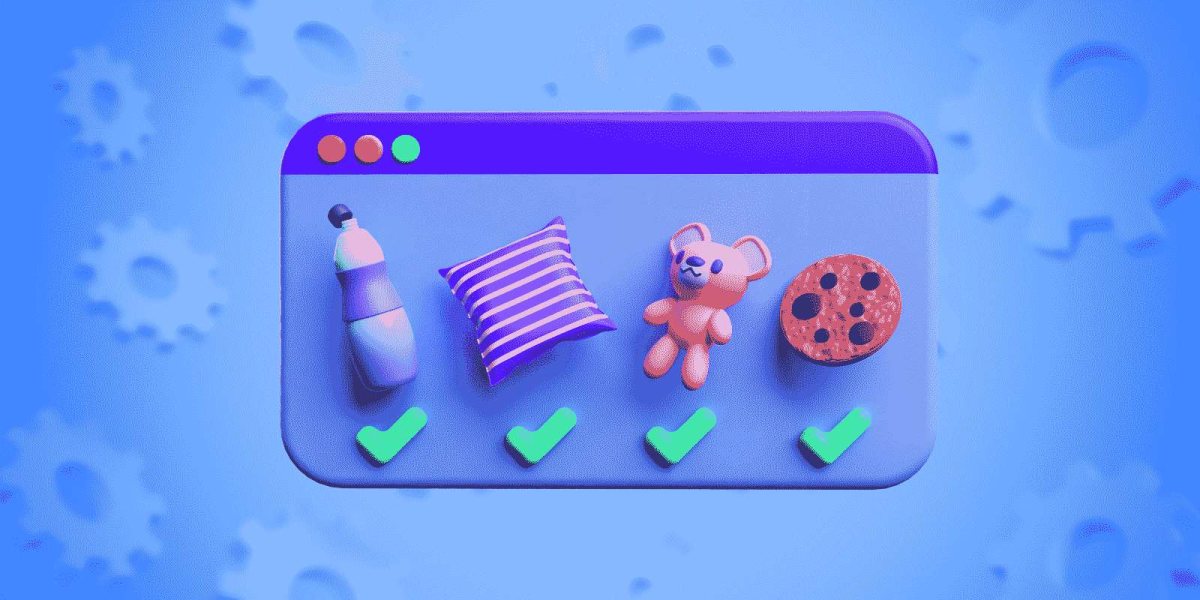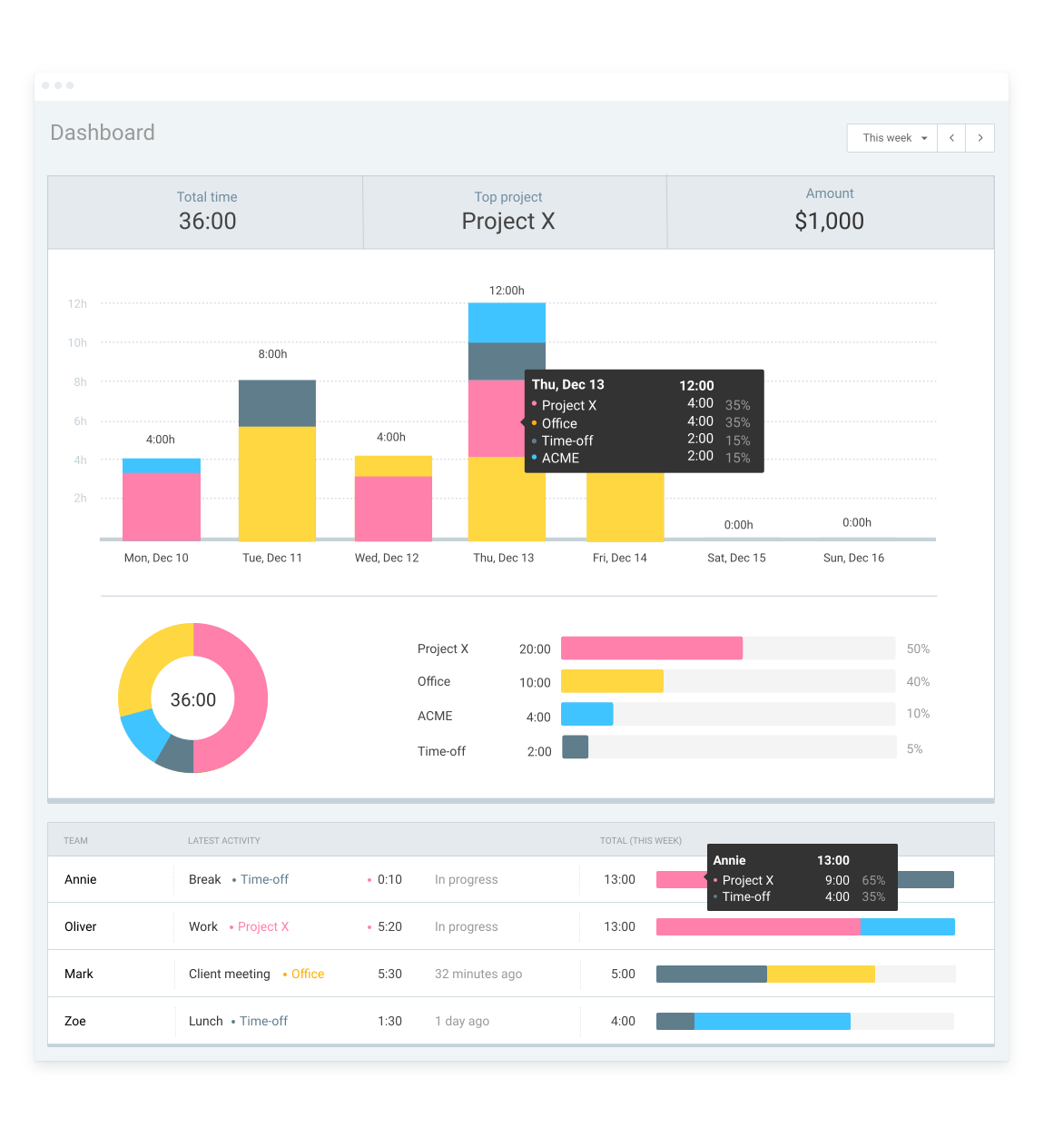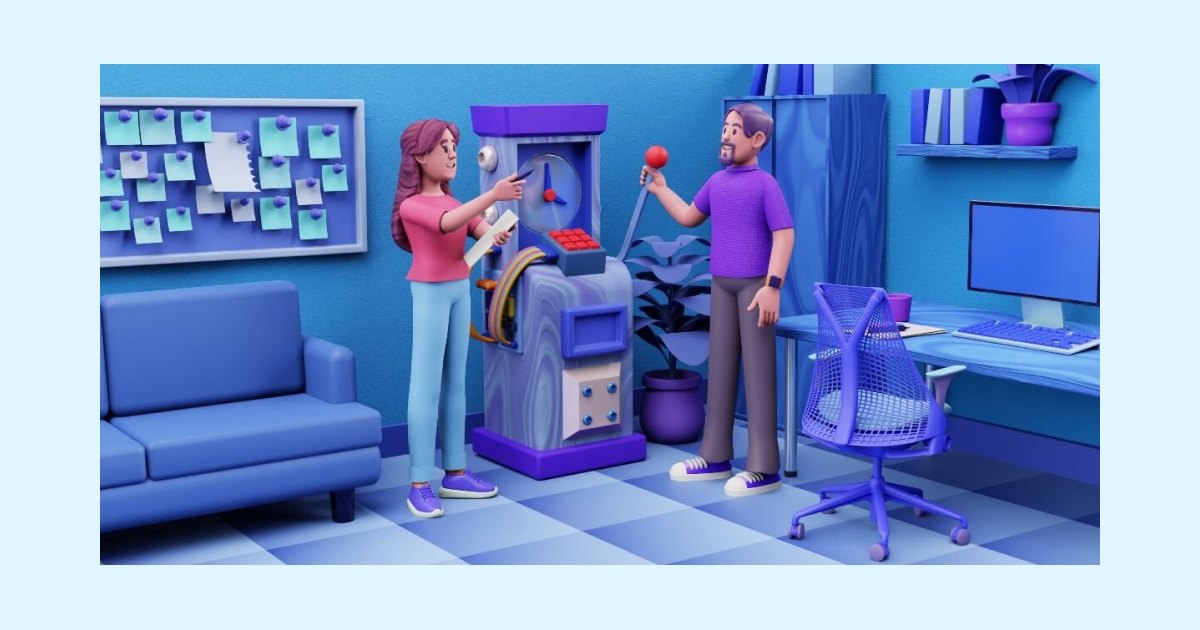How to Stay Healthy while Working Night Shifts
Last updated on: October 27, 2023
From our preschool days, we’re taught that we ought to get up early in the morning, deal with all our responsibilities during the day, and then sleep during the night.
Easy, peasy, right?
Well, not for everyone, as many industries and professions — such as doctors, nurses, emergency responders, and receptionists — require work during night shift hours.
If that sounds all too familiar, you need to read on — to find out how to work night shifts and stay healthy, having in mind all the risks and frequently asked questions.
Let’s dive right in.

Table of Contents
What are the risks of working night shifts?
Despite the fact that some people are simply more productive during the night, continuously working a night shift means shifting your 24 hours upside down.
This habit, as you can imagine, comes with various potential issues and risks.
Some of those issues will have short-term impacts, while others can be more damaging and have long-term negative consequences.
To name a few most important ones that we’ll further cover in more depth, working the night shift may result in:
- Circadian misalignment,
- Vitamin D deficiency,
- Higher risk of various diseases,
- Sleep deprivation, and
- Unbalanced lifestyle.
Now let’s examine why we’ve categorized the issues above as “risks,” according to scientific evidence.
💡 Clockify Pro Tip
If you’re still not sure of the exact periods when your biological prime time (the peak of your focus and energy levels) occurs, here’s everything you need to know to find that out:
Risk #1: Circadian misalignment
The first thing to remember is that our internal biological clock is more or less in sync with the circadian rhythm.
That’s exactly why prolonged work on a night shift must result in your body’s reaction, the most common being the development of a sleep disorder.
On top of that, everyone else is operating on a “normal” schedule, so catching up with the rest of the world is a bit more complicated than it should be. And, honestly, a bit more frustrating.
But we’ll get to the social aspect of circadian misalignment a bit later in the article. For the time being, let’s stick to the physical and physiological consequences and mention the importance of regular vitamin D absorption.
Risk #2: Vitamin D deficiency
To put this simply, just think of the word sunshine, the association, and the mental image connected to it. I bet it’s positive (hopefully even tropical).
However, it’s not only in our heads that being exposed to sunlight makes our lives better.
Why? Because of the sunshine vitamin — vitamin D.
Apart from being a hormone our bodies produce, vitamin D is also a necessary nutrition source found in certain foods, such as:
- Salmon,
- Tuna,
- Mushrooms,
- Egg yolks,
- Herrings,
- Soy milk,
- Yoghurt,
- Orange juice, and
- Caviar (in case you feel really fancy).
Why is vitamin D important?
Apart from playing a role in our heart, nerves, and muscles functioning adequately, vitamin D is essential to our well-being as it helps our body absorb calcium. The deficiency of calcium is a straight path to inflammation, and even osteoporosis.
Long story short, pay attention to your daily vitamin D intake since it will help you stay focused and take back control of your time.
💡 Clockify Pro Tip
While we’re on the subject of being focused, here are some other useful guides and resources:
Risk #3: Higher risk of various diseases
As we’ve mentioned in the circadian misalignment section, such a disruption can harm various biological processes. Thus, if working overnight is a common occurrence in your life, you should at least be aware of what you need to pay special attention to.
After all, in October 2007, the International Agency for Research on Cancer categorized night shift work as a chronodisruption of the circadian rhythm in group 2A. Extensive research on the topic, including results from the aforementioned study, all indicate that shift work is probably carcinogenic to humans.
So, speaking about the health effects associated with working the night shift, here are some of the worst-case scenarios, apart from higher chances of developing cancer:
- Cardiovascular disease,
- Metabolic syndrome, and
- Diabetes.
Temporarily sleeping against the clock is not your main issue here, as you can conclude. What we’re talking about is mostly the long-term effects of an inadequate sleep schedule.
💡 Clockify Pro Tip
Here’s something useful to employers who want to make sure they’re being fair in the shift schedule:
Risk #4: Sleep deprivation
As we’ve already explained, having to be awake during the night is not natural. Moreover, it’s completely out of sync with the aforementioned circadian rhythm.
As a consequence of sleeping against the clock, according to UCLA Health, night shift workers get approximately 2 to 4 hours less sleep than recommended, on average.
Consistent lack of sleep can further easily lead to serious health issues, according to data from the National Library of Medicine. Here’s to provide a few examples:
- Heart disease,
- Gastrointestinal difficulties,
- Metabolic problems,
- Obesity, and even
- Certain cancers.
As you can conclude, sleep deprivation and even deficiency are both risky conditions that further need to be treated — it’s as simple as that.
Otherwise, some of the following scenarios are likely to occur, as a prologue to the conditions from the list above:
- Memory issues,
- Mood changes,
- Weakened immunity,
- High blood pressure,
- Trouble achieving deep work,
- Weight gain, and
- Poor balance.
If you’re not getting enough sleep, your central nervous system will send you signals along the way. You must pay attention to those signals, as, if that happens — it’s a clear sign that you need a break from working night shifts.
Additionally, sleep deprivation is likely to cause or increase paranoia in a person, so it’s unwise for anyone struggling with mental health to work night shifts for a prolonged period of time.
💡 Clockify Pro Tip
Employees who often work night shifts may benefit from trying different weekly schedules, such as:
Risk #5: Unbalanced lifestyle
Apart from your body resisting your existing schedule, social gatherings starting at 10 p.m. or so are suddenly a no-go.
Once your mind’s aware it has to go to work soon, calculations take over, and you’re not really able to relax. Additionally, social interactions can start to drain your energy, and you’ll be more easily agitated.
But, you know what? It’s not always up to you to fit into someone else’s schedule. Try arranging gatherings that don’t clash with your current schedule, or in the words of Alexis Haselberger, a time management and productivity coach:

“Make plans at hours that work for you. Maybe that means more breakfast dates than dinner dates!”
10 Ultimate tips for staying healthy and productive on a night shift
While working night shifts can be exhausting, if you pay attention to the right aspects of your health and track your habits, you can live a healthy life AND be productive during your shift.
So, without further ado, here are the top 10 tips to help you adjust to working the night shift while not compromising your health.
Tip #1: Expose yourself to bright lights during the night shift
We’ve already mentioned vitamin D deficiency as one of the most detrimental risks of working the night shifts only.
So, here’s a possible solution to help you minimize the damages, in the words of Matt Claes, the head coach and founder at Weight Loss Made Practical:

“The composition of sunlight in the morning is different from evening sunlight and your body is able to “tell the difference”. To compensate for the night shifts in terms of health and make them more productive to some extent, you can fight light with light. In practice, this will mean exposing yourself to bright lights, likely artificial ones, when you wake up and throughout the night shift. The closer you get to bedtime again, the more you want to dim the lights.”
Matt also adds that, if this is a permanent kind of situation for you, you should definitely consider investing in the right “equipment”:

“There are even special lamps that simulate the sunlight cycle to make this light manipulation easier and more effective. You do want to keep in mind that these lamps are not perfect and can get pricey. That aside, even more basic light exposure manipulation should be able to help people who work night shifts improve their health and productivity.”
Summa summarum — fight light with light!
And, since working a night shift means regularly being asleep during the natural sunshine period, you may consider taking a supplement.
* Note: Consult with your pharmacist regarding dosage, as you don’t want to exceed the Recommended Dietary Allowance for adults threshold, as Harvard’s School of Public Health suggests.
Tip #2: Optimize your environment for sleep
Now, according to the National Institute for Occupational Safety and Health, creating a good sleep environment means to:
- Sleep in darkness,
- Reduce noise,
- Keep it cool (temperature-wise, for starters), and
- Keep a separate area for sleep only.
Being very much in alignment with all that we’ve mentioned, here’s another tip from Alexis Haselberger, who’s been working with clients in different time zones for a while and knows a thing or two about working during the night:

“Use blackout curtains or a sleep mask to keep the light out when you’re sleeping during the day.”
Suggesting the same, Leena Chitnis, the CEO and founder of Timberdog, who’s also worked the night shift for years, couldn’t agree more. Additionally, she recommends paying special attention to the room temperature.

“KEEP A ROOM COOL: 68 degrees (Fahrenheit) is now considered the optimal temperature for your sleep area. If this is too cool, consider adding an extra light blanket on top of your comforter.”
💡 Clockify Pro Tip
Working in a different time zone from your colleagues and clients can have a serious impact on your productivity. Here are some tips to help you understand and further deal with the issue:
Tip #3: Eat well and at the right time
A healthy and nutritious diet goes a long way, in terms of your overall health but also specific aspects such as productivity and efficiency.
To provide an example, the latest productivity stats indicate that adequate nutrition boosts productivity levels by a whopping 25%.
So, here’s what you can do to reduce the impact of chronic circadian misalignment, according to Chester Wu, MD and a double board certified in Psychiatry and Sleep Medicine:

“If you work night shifts, consider having a meal before and after your shift and not eating during the night shift itself.”
Apparently, daytime eating helps prevent the circadian misalignment, as 2021 study results show.
Moreover, Chester adds that:

“Eating at night or late in the evening can change the timing of your peripheral clocks and cause misalignment between them and your master body clock. And the longer you’re in circadian misalignment for, the greater the risk of health issues.”
Another person with relevant experience with working night shifts, Jeremiah Shaw, athlete runner and the CEO at Running Wilder, makes a similar point and reminds all the night shift workers not to forget the basics and:

“Eat well! It might seem like an obvious one but sometimes we get so busy with our day-to-day lives that we forget about eating healthy meals. Make sure that you’re eating lots of fruits and veggies every day (and maybe even adding in a few snacks here and there) so that you don’t get sick when working through the night!”
Tip #4: Have a regular exercise routine
There are many benefits of exercise, as it is a great way to increase the oxygen levels in your blood. According to the National Health Service article, people who exercise regularly have:
- Improved mood, sleep quality, and energy,
- Reduced risk of stress and depression, and
- Reduced risk of various illnesses (by a stunning 30%).
That’s why Jeremiah also promotes the importance of regular exercise and, as a night shift worker himself, explains how to implement the habit hassle-free:

“I also try to get as much exercise as possible when I’m not at work. If you can’t fit in a regular workout routine, try taking dog walks or going for hikes with friends on the weekend (or even during your lunch break). That way you’re getting some extra exercise each week without having to try too hard.”
Furthermore, the UK Chief Medical Officers’ Physical Activity Guidelines recommend at least 150 minutes of physical activity per week for healthy adults.
So, you can see where we’re getting at — exercise is important!
💡 Clockify Pro Tip
Looking for some new types of exercise to improve your routine? You’ll love this article:
Tip #5: Try melatonin for better sleep
When it comes to quality of sleep, the first thing that comes to mind is melatonin, commonly referred to as the sleep hormone. Serving as a vital part of your sleep cycle, the release of melatonin is actually a response of your brain to darkness.
As you can imagine, your natural melatonin levels are the highest at night, as being exposed to light instantly blocks your melatonin production.
So when your job requires you to be awake at that time, Alexis has another suggestion for you — just try melatonin as a supplement. It may work wonders for your sleep quality, above all.
* Note: Before use, please consult with your doctor or another qualified health professional for personalized medical advice.
Tip #6: Keep your mind engaged during the night shift
Just as the night shift work can impact you on a biological level, effects can be seen at the psychological level as well.
Such a schedule is likely to cause decreased brain activity and further result in impaired cognitive performance, as the latest research suggests.
That’s why it’s vital to do everything you can to keep your brain engaged and active during the night shift. The options are endless and will vary depending on your personality type, job description, and the specific level of motivation you feel at the moment. Here’s a tip you can use to combat the issue, which Elizabeth Pharo, the CEO and Chair of the Board at Divorce.com shared with you firsthand:

“One of the biggest challenges of working nights is staying focused when the rest of the world is sleeping. To combat this, I suggest finding ways to keep your mind engaged. Audiobooks and podcasts can be a great way to stay mentally stimulated while still being able to focus on your work.”
Podcasts may not be your cup of tea, but surely you can think of something that rings a bell when you hear the words mental stimulation, so use it to your advantage.
💡 Clockify Pro Tip
For those of you who like to stimulate your mental imagery with podcasts, here’s an article you’ll appreciate:
Tip #7: Vary your tasks during the night shift
More work variety goes hand in hand with the previous segment — keeping your brain stimulated. Being in charge of different types of tasks will help you stay focused on the matter at hand and thus reduce the margin of error in your performance.
Why is that?
Well, because even though our brains are extremely complex, at the same time, it’s ridiculously easy to trick them into thinking exactly what we want.
Varying our tasks helps us perceive our routine as not being monotonous. It’s as simple as that. Here’s what Mike Pace, health and productivity coach and an ergonomics expert, has to say about varying tasks during night shifts:

“Your mind and body will thank you. If you can vary your tasks throughout your shift, you lessen your risk of fatigue and pain that can be associated with repetitive tasks. Task variation also helps keep your mind focused as it does not allow your mind to wander.”
So, some of the perks of varying tasks and even positions can include:
- Higher motivation,
- Higher productivity, and
- Lower resignation rates.
💡 Clockify Pro Tip
Here’s something that may help you organize your time during the shift, if you’ve ever found yourself struggling with the issue:
Tip #8: Monitor your water intake
Okay, this one goes for anyone and everyone, but it just might be slightly more relevant to people working night shifts:
Stay hydrated!
Our bodies are up to 75% made up of water, so when we say it’s essential for all life, it really is the truth.
Here’s what water does to the human body, among other things:
- Allows cells to grow, reproduce, and survive,
- Regulates body temperature,
- Helps manufacture hormones and neurotransmitters, and
- Helps deliver oxygen all over the body.
For this reason, instead of chugging coffee and energy drinks to help you stay awake, Elizabeth from above has something else to share and recommend to all the night shift workers:

“It’s all too easy to fall into the trap of relying on junk food and caffeine to keep you going, but trust me, in the long run, all of these could damage your health, so you might not be able to be productive anymore. And don’t forget to drink plenty of water! I mean, water, not soda, sugar drinks, or tea. Dehydration can sneak up on you, especially if you’re relying on coffee to get you through the night.”
The takeaway is, once again — stay hydrated!
Tip #9: Don’t feel pressured to attend every social event
As we’ve mentioned earlier, your schedule may require your social circle to adapt to the fact. After all, what’s wrong with breakfast or brunch gatherings?
Managing your social life while working night shifts means finding a time slot in the day when both parties can be present (and fully awake). So, as you can conclude from Jeremiah’s take on my question about how to manage all that, you’ll simply have to be okay with skipping some family or friend-organized events:

“I make sure to get plenty of sleep during the day — even if it means staying home from family dinners so I can catch some extra …zzz’s. It’s not always easy, but it’s worth it!”
Tip #10: Use an app for monitoring your behavior
Now, this goes for everything we’ve mentioned above — water intake, adequate nutrition, social events calendar, etc. — only if you monitor your habits and behavior can you adjust what needs to be adjusted if need be.
So, last but not least, Leena has another pro tip for people working night shifts — to simply leverage the power of technology. Here’s how she put it:

“I use an app to monitor my water intake, daily exercise and other daily goals that I set for myself. I found that working nights can be quite disruptive, unless you are used to it or have apps that can help to keep you on track.”
Just because your schedule is disrupted, in a way, doesn’t mean meeting your goals and objectives should suffer too. A simple habit-tracking app can go a long way in terms of your overall well-being and every aspect it includes.

As you can see in the screenshot above, Clockify can provide valuable insights into where your time goes, helping you monitor your habits and work on improving your routine. With just a glance at your Dashboard, you can easily pinpoint your unproductive habits. Only once you’re aware of which habits are time wasters can you start avoiding those.
FAQ about working night shifts
Now, before we wrap up the article, let’s give you the answers to the 3 most common questions regarding work during night shifts.
Can you live a healthy life on the night shift?
Put simply, the answer’s yes.
You do have to take special care of your physical and mental health, though. Getting enough sleep, having a balanced and nutritious diet, staying hydrated, and regularly having checkups with your doctor are great starting points.
How many hours of sleep is healthy for the night shift?
According to the National Sleep Foundation, adults should get between 7 and 9 hours of sleep per day.
Even though the release of melatonin is highest when night shift workers are awake, our bodies (and minds) mostly care about whether we’ve provided them with enough sleep in a 24-hour period. Meaning — it’ll still count if you get some sleep during the day.
This might include taking a nap after you get from the night shift, and then sleeping longer prior to the next night shift. Bear in mind that the total sleep time for the day shouldn’t exceed 10 or 11 hours, nor be shorter than 5 or 6 hours.
What time is best for exercise for night shift workers?
Even though this can be a highly individualized aspect of health, some experts recommend exercising 30 to 45 minutes before the night shift starts.
However, the evidence shows the most important aspect is to follow your body’s flow and energy levels when it comes to exercise. Individual night shift workers should therefore take multiple biological and behavioral factors into consideration, and act accordingly.
Here’s to name a few most decisive factors:
- Any pre-existing health conditions,
- Our body mass index, and
- Time spent on physical activity.
The moral of the story is — if you feel like exercising after your night shift, just do it at that point of your day.
Wrapping it up: You CAN stay healthy while working the night shift
As you can conclude from the article, working the night shift comes with a fair share of losses.
However, if your profession requires you to do so, you’ll be thrilled to know that you CAN stay healthy despite the fact that you’re operating on a different schedule than most people.
It’s still vital to be aware of the potential negative effects and try to combat their occurrence and further development. Live a healthy life, stick to the pieces of advice we’ve shared, and be okay with having others adjust their schedule for your own sake.
After all, it’s all about achieving the desired work-life balance, regardless of the shift we mostly work.
✉️ Are you a night shift worker yourself? If you’d like to share any other tips and tricks, or perhaps some additional thoughts on the topic, feel free to write to us at blogfeedback@clockify.me. That way, you’ll get a chance to be featured in this or one of our future articles. And, if you liked this post and found it useful, share it with someone you think would benefit from it.





